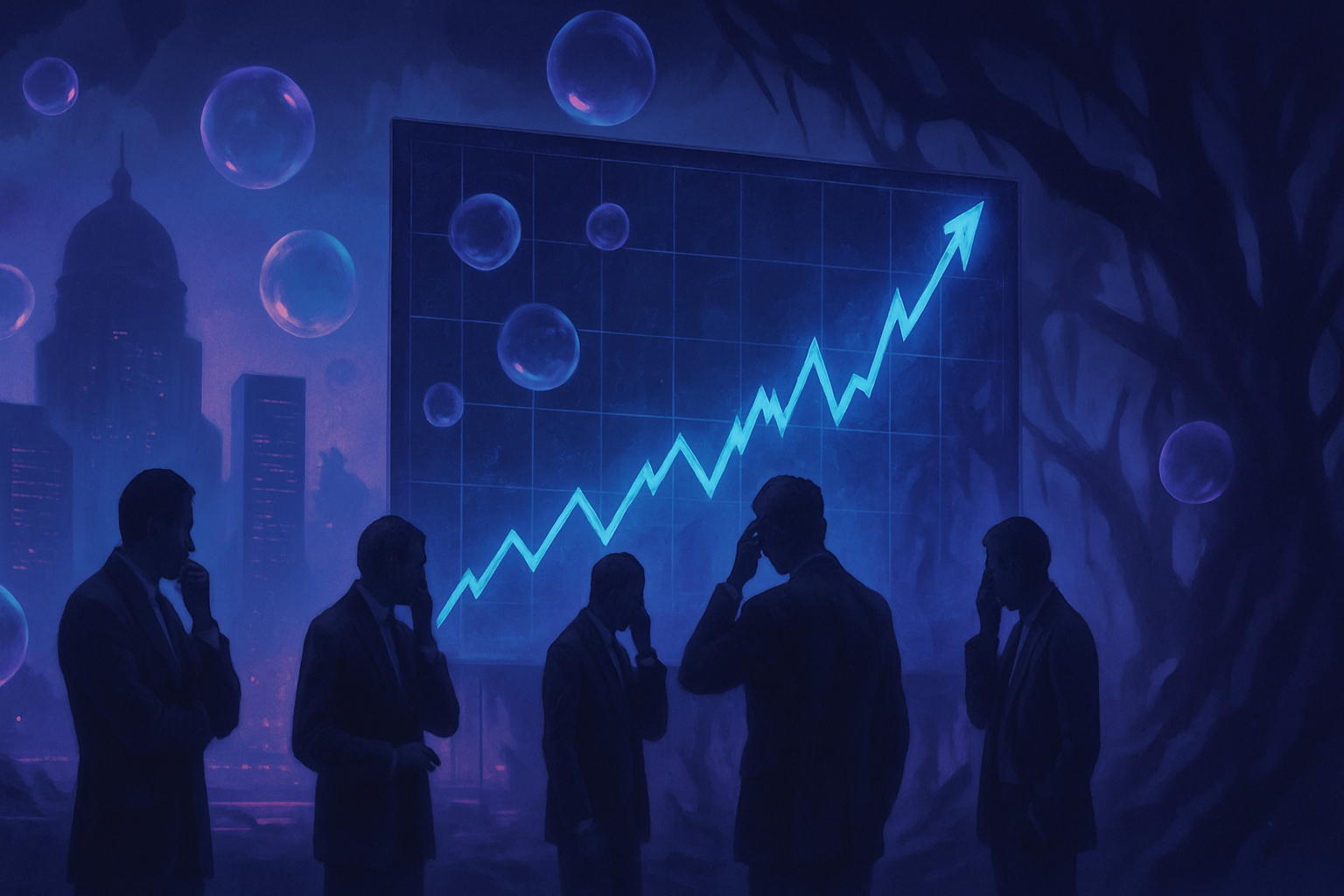Central bankers are feeling a palpable tension as they prepare to engage in crucial discussions in Washington. Concerns about a threatening speculative bubble in the financial markets are emerging, especially regarding artificial intelligence companies. This situation could lead to a devastating stock market crash, jeopardizing global economic stability. The convergence of top financial officials is taking place under the weight of pressing warnings, suggesting that valuations are reaching worrying heights. Historical fears of abrupt corrections loom, evoking tumultuous periods from the past.
The anxiety of the stock market bubble
Central bankers and politicians are arriving in Washington with an increasing concern regarding the global financial situation. Ongoing trade tensions and rising public debt are exacerbating an atmosphere of uncertainty. A new factor for vigilance is emerging: the risk of a market collapse.
Concerns of central bankers
Kristalina Georgieva, Managing Director of the International Monetary Fund (IMF), recently expressed concerns regarding financial stability. In a revealing speech, she mentioned stock valuation levels reminiscent of those seen during the Internet boom of the 90s. A severe correction could have devastating repercussions for global growth, particularly for developing countries.
Alert on the AI bubble
Many experts are worried about the speculative bubble observed around companies related to artificial intelligence. Repeated interventions by central bankers are deemed necessary to prevent an imminent crisis. Georgieva highlighted that a tightening of financial conditions could reveal vulnerabilities, thus affecting the global economy.
Increased analyses and concerns
Institutions like the Bank of England and the European Central Bank (ECB) share these concerns. ECB officials have mentioned risks of rapid price corrections during their recent monetary policy meetings. The stance of Federal Reserve Chairman Jerome Powell reinforces the perception of a highly valued market.
Reactions as international meetings approach
Meetings of the IMF and World Bank are scheduled for next week, along with the Global Financial Stability Report publication. Statements from G7 and G20 ministers present at this meeting will attract heightened attention. In this context, the expression of concerns by decision-makers takes on particular significance.
Impact of trade tensions
Tensions between the United States and China amplify the sense of anxiety. The threat of new tariffs, announced by the Trump administration, has already had notable consequences on the stock markets. Financial officials remain vigilant, seeking to prevent a collapse similar to those of the past.
Implications for the future
The future remains uncertain, but it is clear that monitoring financial markets is paramount. Concerns about budget discipline and rising economic risks are prompting central bankers to act swiftly. The need for preventive measures is more evident than ever.
Consequences for emerging countries
Developing countries are likely to be the hardest hit if a market correction occurs. Access to financing will be affected, exacerbating existing economic vulnerabilities. Leaders must also devise strategies to mitigate these negative impacts.
Global growth prospects
Global growth forecasts, typically optimistic, are becoming increasingly uncertain. The awareness of the dangers of asset overvaluation is leading officials to rethink their policies. Every intervention could have consequences for long-term economic prospects.
Frequently asked questions
What is a stock market bubble and why is it concerning for central bankers?
A stock market bubble occurs when the prices of financial assets, such as shares, increase exponentially, often beyond their real value. Central bankers worry about these bubbles because they can lead to a sharp market correction, which can destabilize the global economy.
What signs indicate that a stock market bubble is forming?
Signs of a stock market bubble include excessive valuations, increasing interest in specific stocks, often technology companies, and heightened market volatility. Investors may also become euphoric and overlook economic fundamentals.
How does the danger of a stock market bubble affect monetary policy?
The danger of a stock market bubble may prompt central bankers to adjust interest rates to prevent economic overheating. They may also adopt additional regulatory measures to manage risks and ensure financial stability.
What impacts would a market correction have on emerging economies?
A market correction could particularly affect emerging economies, as they are often less resilient to economic shocks. This may lead to capital flight, higher borrowing costs, and negative impacts on economic growth.
Why is Artificial Intelligence (AI) at the center of bubble-related concerns?
AI attracts many investors, leading to significant valuation increases for companies in the sector. Central bankers fear that excessive investments in overvalued startups will create an unsustainable bubble, likely to cause a sharp collapse.
How do IMF and World Bank meetings influence central bankers’ decisions regarding stock market bubbles?
IMF and World Bank meetings allow central bankers to exchange information and analyses on global economic trends. These interactions can influence their perception of the risks associated with stock market bubbles and signal coordinated actions to mitigate dangers.
What measures can be taken to avoid a stock market bubble?
To avoid a stock market bubble, central banks may raise interest rates, impose stricter regulations on credit, and closely monitor excessive speculation on certain assets. They can also encourage transparent communication with investors about market valuations.
What is the importance of regular financial market assessments for central bankers?
Regular assessments of the markets allow central bankers to identify potential imbalances and act quickly to prevent a bubble. It also helps ensure that adopted policies adapt to current economic conditions.






